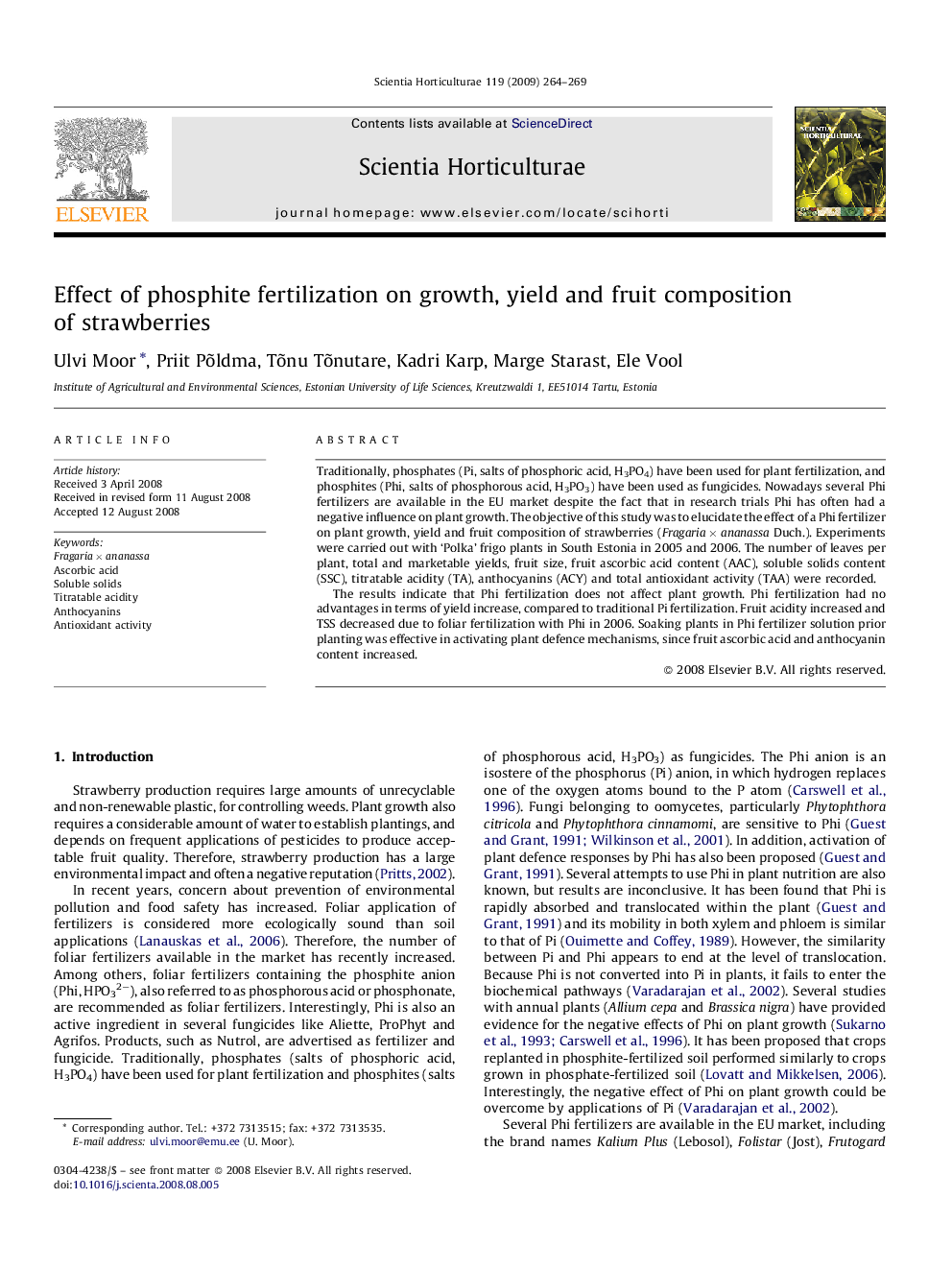| Article ID | Journal | Published Year | Pages | File Type |
|---|---|---|---|---|
| 4569160 | Scientia Horticulturae | 2009 | 6 Pages |
Traditionally, phosphates (Pi, salts of phosphoric acid, H3PO4) have been used for plant fertilization, and phosphites (Phi, salts of phosphorous acid, H3PO3) have been used as fungicides. Nowadays several Phi fertilizers are available in the EU market despite the fact that in research trials Phi has often had a negative influence on plant growth. The objective of this study was to elucidate the effect of a Phi fertilizer on plant growth, yield and fruit composition of strawberries (Fragaria × ananassa Duch.). Experiments were carried out with ‘Polka’ frigo plants in South Estonia in 2005 and 2006. The number of leaves per plant, total and marketable yields, fruit size, fruit ascorbic acid content (AAC), soluble solids content (SSC), titratable acidity (TA), anthocyanins (ACY) and total antioxidant activity (TAA) were recorded.The results indicate that Phi fertilization does not affect plant growth. Phi fertilization had no advantages in terms of yield increase, compared to traditional Pi fertilization. Fruit acidity increased and TSS decreased due to foliar fertilization with Phi in 2006. Soaking plants in Phi fertilizer solution prior planting was effective in activating plant defence mechanisms, since fruit ascorbic acid and anthocyanin content increased.
